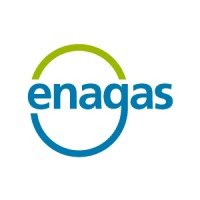Logan Energy orders electrolysis plant for ARBIKIE project; Bloom Energy electrolyser in Korea
GHS will install an electrolysis plant in the ARBIKIE Distillery in Scotland.

Green Hydrogen Systems has signed a supply agreement with Edinburgh-based Logan Energy to deliver electrolysis equipment for a project in Scotland.
The order includes the supply of two GHS HyProvide® A90 electrolysers with a combined capacity of 0.9 MW.
The electrolysers will be deployed in a 40 ft container as a complete green hydrogen plant used in the ARBIKIE Distillery in Scotland.
Green Hydrogen Systems will be responsible for delivering the electrolyser units and will support the project with onsite maintenance and remote monitoring and support as part of a three-year service agreement.
The ARBIKIE project will comprise a single 1 MW wind turbine on the distillery’s farmland, which will export the electricity generated to Green Hydrogen Systems’ electrolysis plant.
When fully operational during Q4 of 2022, the ordered electrolysers will have the capacity to provide up to 389 kg/day of green hydrogen. The produced hydrogen will be used to displace the heating oil currently used by the distillery to raise steam for the distillation process.
Logan Energy will operate the electrolysis plant. Previously Logan Energy placed an order two months ago for a hydrogen project in Dorset, England.
Bloom Energy’s first international electrolyser installation in South Korea
Bloom Energy has deployed its high temperature 130 kW solid oxide electrolyser in Gumi, South Korea.
Bloom’s high-temperature electrolyser operates at its designed high efficiency, producing hydrogen onsite more efficiently than low-temperature PEM and alkaline electrolysers.
Fully operational at the Bloom SK Fuel Cell centre in South Korea since January 2022, this new demonstration is testing electrolysis efficiency using water as an input in intermittency mode.
The Bloom Electrolyzer is expected to operate at 46 kWh/kg H2 output with water as its input in production. The electrolyser requires even less electricity when steam is used, expected to operate at 40.4 kWh/kg H2, driving further efficiencies.
